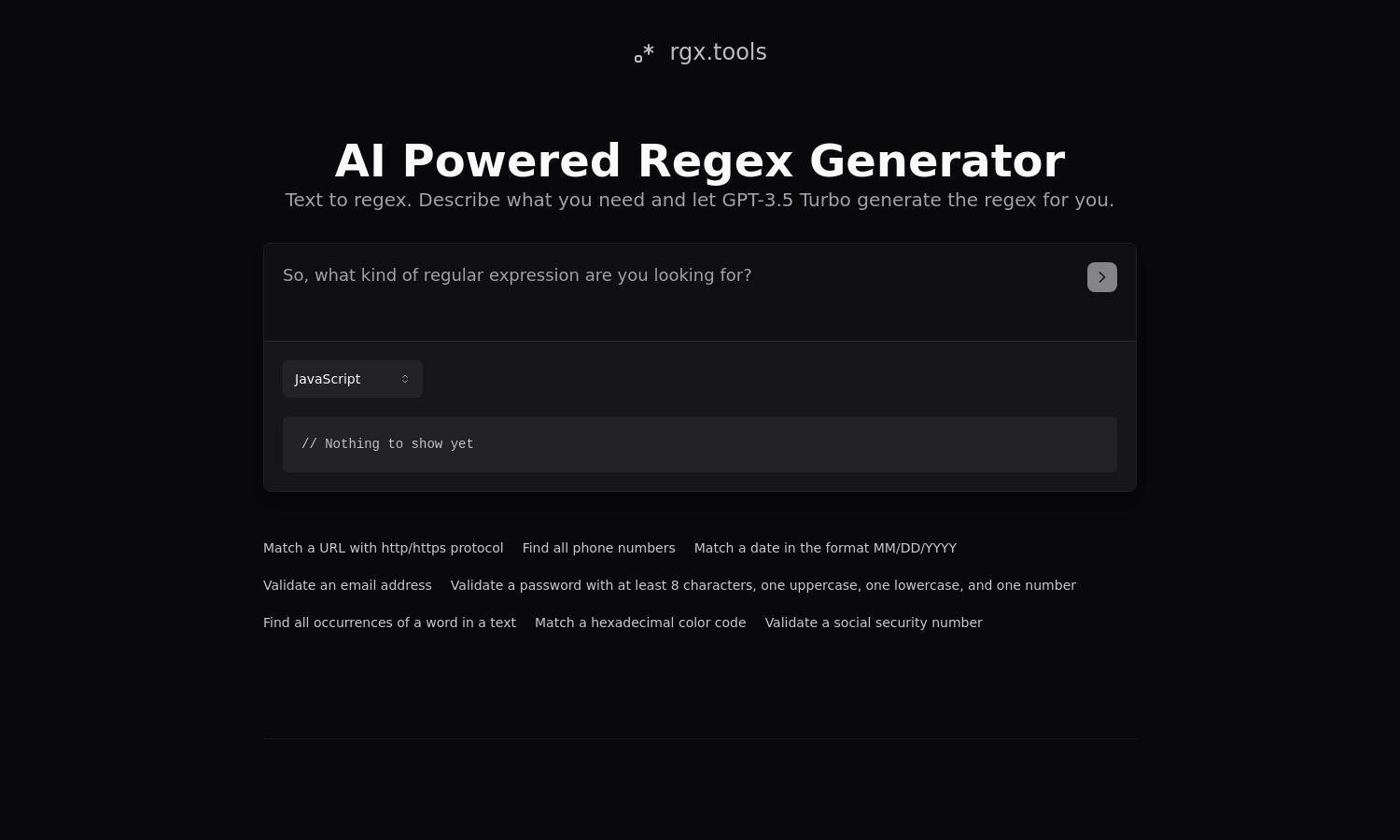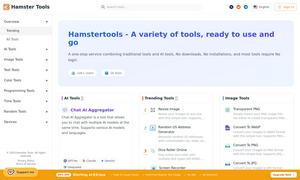rgx.tools

About rgx.tools
rgx.tools is an innovative AI-powered tool designed to simplify the process of generating and editing regular expressions. Targeted at developers and non-technical users alike, rgx.tools leverages GPT-3.5 Turbo to create clear and functional regex patterns, streamlining coding efforts and enhancing productivity.
rgx.tools provides a 100% free service, with no subscription tiers required. Users can utilize its robust AI capabilities without any costs, making it accessible for everyone. As a bonus, upgraded functionalities are always in development, promising future enhancements at no charge.
The user interface of rgx.tools is designed for simplicity and efficiency, featuring a clean layout that ensures a seamless experience. Users can easily navigate the regex generation process and benefit from user-friendly elements that make complex tasks straightforward and stress-free.
How rgx.tools works
Users of rgx.tools start by describing the regex pattern they need. The platform then utilizes the sophisticated capabilities of AI to generate an accurate and efficient regular expression. Following this, users can edit and refine their regex as needed, resulting in clean output that is easy to understand and maintain.
Key Features for rgx.tools
AI-driven regex generation
The AI-driven regex generation feature of rgx.tools allows users to effortlessly create complex regex patterns. By simply describing their needs, users receive optimized regex outputs tailored to specific tasks, significantly reducing the time and effort required for manual coding.
User-friendly regex editing
rgx.tools offers a robust user-friendly regex editing feature, enabling users to modify and refine autogenerated regular expressions easily. This capability enhances the accuracy of their work, making it simple to tailor regex patterns to match specific criteria, improving productivity and precision.
Comprehensive examples and code
rgx.tools provides comprehensive examples and code snippets alongside generated regex patterns. This unique feature helps users understand how to implement their regular expressions effectively, bridging the gap between creation and application for enhanced usability across different programming scenarios.








